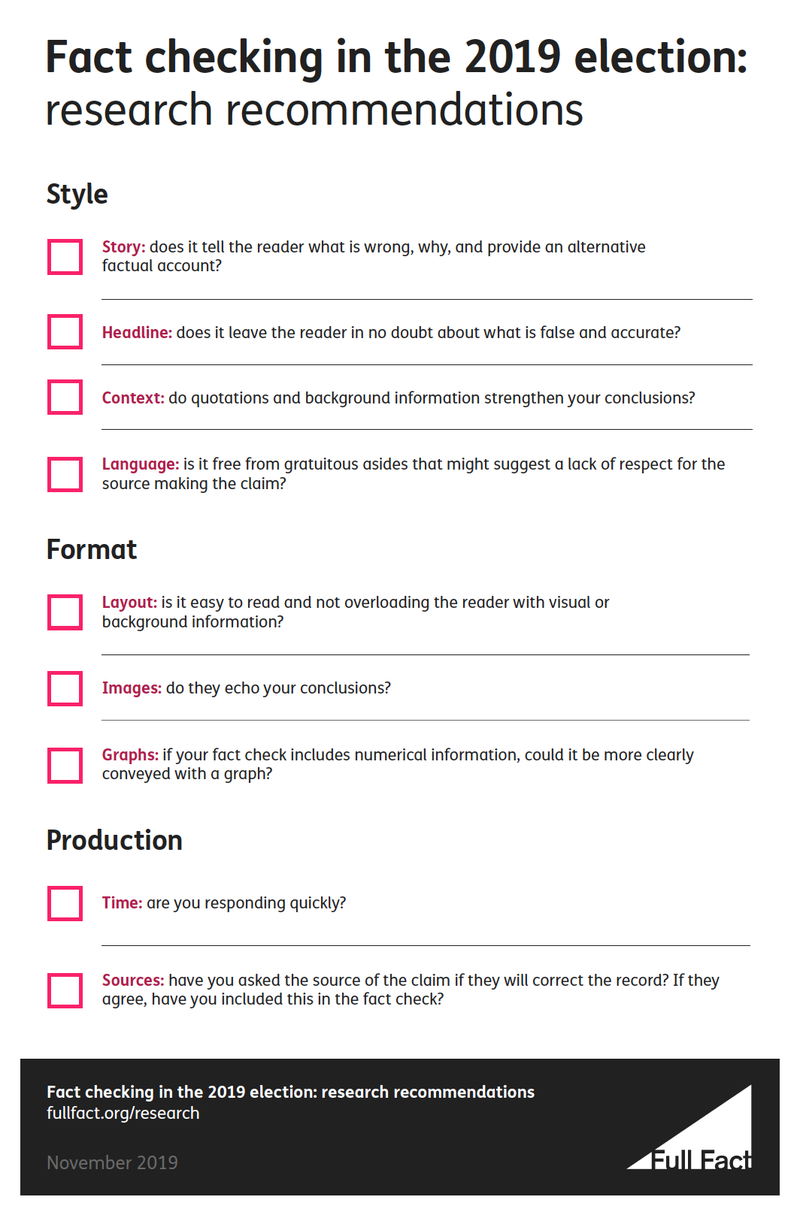Fact checking the 2019 election: what makes a well communicated fact check?
What makes a fact check well communicated and understood? To ensure we’re doing the best we can to fight misinformation during the general election campaign, our new briefing Fact checking in the 2019 election: research recommendations draws together peer-reviewed academic research, to provide fact checkers with a robust, evidence-based set of recommendations.
There is good reason to take fact checking seriously. Generally speaking, fact checks reduce belief in misinformation, increase the perceived quality of news, and can help foster a culture of accuracy. An experiment with US legislators, for instance, found that politicians warned against the possible reputational damages of publishing inaccurate information were also less likely to be caught making questionable statements in the months to come. Though small and limited to the US, this gives us good reason to see fact checking as part of an effort to promote honest and accurate debate.
As this briefing argues however, good fact checking is also influenced by elements of style, format, and production.
Style wise, it is important to give answers early and clearly, to explain what is wrong but also how inaccuracies arose in the first place, to ensure that contextual information supports the correction, and above all, to play fair.
Join 72,953 people who trust us to check the facts
Sign up to get weekly updates on politics, immigration, health and more.
Subscribe to weekly email newsletters from Full Fact for updates on politics, immigration, health and more. Our fact checks are free to read but not to produce, so you will also get occasional emails about fundraising and other ways you can help. You can unsubscribe at any time. For more information about how we use your data see our Privacy Policy.
In terms of format, belief updating is aided by fact checks that are easy to digest, where figures are supported by graphs, and where any images included reinforce the accompanying text. It is important to remember that while a good picture can aid engagement and information recollection, a discordant one can distract, and even undermine the conclusions of the fact check.
There are also tactics of production. Fact checks delivered early minimise the “illusory truth effect” created by repeated misinformation, and if you can get the person or organisation making the claim to correct it, even better.
This briefing summarises the best of what we have found to date and there is always more to learn. We are working on a series of research briefings with Africa Check and Chequeado that review the evidence on this and other topics in more detail and covering the continents in which we work. You can read more about this research programme in our blog post.
For this general election, we suggest the following questions for fact checkers to ask themselves (also available as a pdf):
